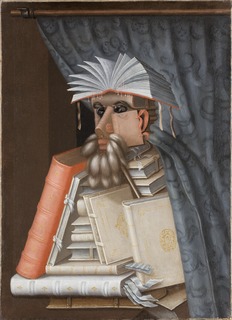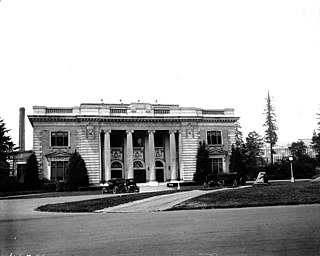
Oklahoma State University is a public land-grant and sun-grant research university in Stillwater, Oklahoma. OSU was founded in 1890 under the Morrill Act. Originally known as Oklahoma Agricultural and Mechanical College, it is the flagship institution of the Oklahoma State University System. Official enrollment for the fall 2010 semester system-wide was 35,073, with 23,459 students enrolled at OSU-Stillwater. Enrollment shows the Freshman class of 2012 was the largest on record with 4,298 students. OSU is classified by the Carnegie Foundation as a research university with highest research activity.

The University of Puget Sound is a private liberal arts college in Tacoma, Washington. Puget Sound offers Bachelor of Arts, Bachelor of Science, Bachelor of Music, Master of Arts in Teaching, Master of Education, Master of Occupational Therapy, and Doctor of Physical Therapy degrees. The college draws approximately 2,600 students from 44 states and 16 countries. It offers 1,200 courses each year in more than 50 traditional and interdisciplinary areas of study.

Southern Methodist University is a private research university in metropolitan Dallas, with its main campus located in University Park. SMU also operates satellite campuses in Plano, Texas and Taos, New Mexico.

Creighton University is a private, coeducational, Jesuit, Roman Catholic university in Omaha, Nebraska, United States. Founded by the Society of Jesus in 1878, the school is one of 28 member institutions of the Association of Jesuit Colleges and Universities. The university is accredited by the Higher Learning Commission.

Butler University is a private university in Indianapolis, Indiana, United States. Founded in 1855 and named after founder Ovid Butler, the university has over 60 major academic fields of study in six colleges: Lacy School of Business, College of Communication, College of Education, College of Liberal Arts and Sciences, College of Pharmacy and Health Sciences, and Jordan College of the Arts. It comprises a 295-acre (119 ha) campus located approximately five miles (8.0 km) from downtown Indianapolis.
The Medical Library Association (MLA) is a nonprofit, educational organization with more than 4,000 health sciences information professional members and partners worldwide.
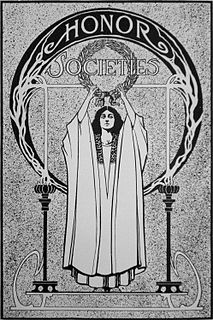
In the United States, an honor society is a rank organization that recognizes excellence among peers. Numerous societies recognize various fields and circumstances. The Order of the Arrow, for example, is the national honor society of the Boy Scouts of America. Chiefly, the term refers to scholastic honor societies, those that recognize students who excel academically or as leaders among their peers, often within a specific academic discipline.

Phi Delta Chi (ΦΔΧ) was founded on 2 November 1883 at the University of Michigan in Ann Arbor by 11 men, led by Dean Albert B. Prescott. The fraternity was formed to advance the science of pharmacy and its allied interests, and to foster and promote a fraternal spirit among its brothers, now both male and female.

Charleston Southern University (CSU), founded in 1964 as Baptist College, is an independent comprehensive university located in North Charleston, South Carolina, United States. Charleston Southern enrolls 3,600 students. Affiliated with the South Carolina Baptist Convention, the university's vision is to be nationally recognized for integrating faith in learning, leading and serving.
Professional fraternities, in the North American fraternity system, are organizations whose primary purpose is to promote the interests of a particular profession and whose membership is restricted to students in that particular field of professional education or study. This may be contrasted with service fraternities and sororities, whose primary purpose is community service, and general or social fraternities and sororities, whose primary purposes are generally aimed towards some other aspect, such as the development of character, friendship, leadership, or literary ability.

Beta Phi Mu is the international honor society for library & information science and information technology. Founded by a group of librarians and library educators, the society's express purpose is to recognize and encourage "superior academic achievement" among library and information studies students. Beta Phi Mu now has 39 active chapters in the U.S. and abroad, continues to sponsor various publications and funds several scholarships.
Abram Penn Staples was a Virginia lawyer, legislator and jurist.
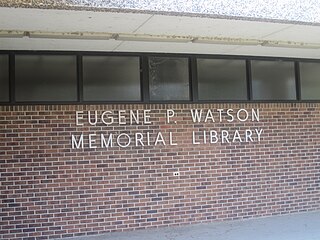
Eugene Payne Watson was from 1940 until his death the head librarian and professor of library science at Northwestern State University in his native Natchitoches, Louisiana. He fought to gain greater academic recognition of librarians. In 1950, Watson founded Alpha Beta Alpha, the first coeducational undergraduate library science fraternity in the United States. The fraternity held its first biennial convention on the NSU campus in 1952. At the time of Watson's death, the fraternity had twenty-nine chapters nationally.

The Professional Fraternity Association (PFA) is an association of national, collegiate, professional fraternities and sororities that was formed in 1978. Since PFA groups are discipline-specific, members join while pursuing graduate degrees as well as undergraduate degrees. PFA groups seek to develop their members professionally in addition to the social development commonly associated with general fraternities. Membership requirements of the PFA are broad enough to include groups that do not recruit new members from a single professional discipline. The PFA has welcomed service and honor fraternities as members; however, Greek letter honor societies more commonly belong to the Association of College Honor Societies.

Robert Bingham Downs was an American author and librarian. Downs was an advocate for intellectual freedom as well. Downs spent the majority of his career working against, and voicing opposition to, literary censorship. Downs authored many books and publications regarding the topics of censorship, and on the topics of responsible and efficient leadership in the library context.
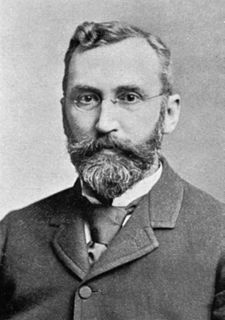
George Milbr(e)y Gould was an American physician and lexicographer.

Kathleen de la Peña McCook is a library scholar, librarian, and activist. Much of her work centers around social justice, human rights, First Amendment issues, and the freedom of information.
Paul North Rice was an American librarian who served as Chief of the Reference Department of the New York Public Library, Executive Secretary of the Association of Research Libraries and President of the American Library Association.
